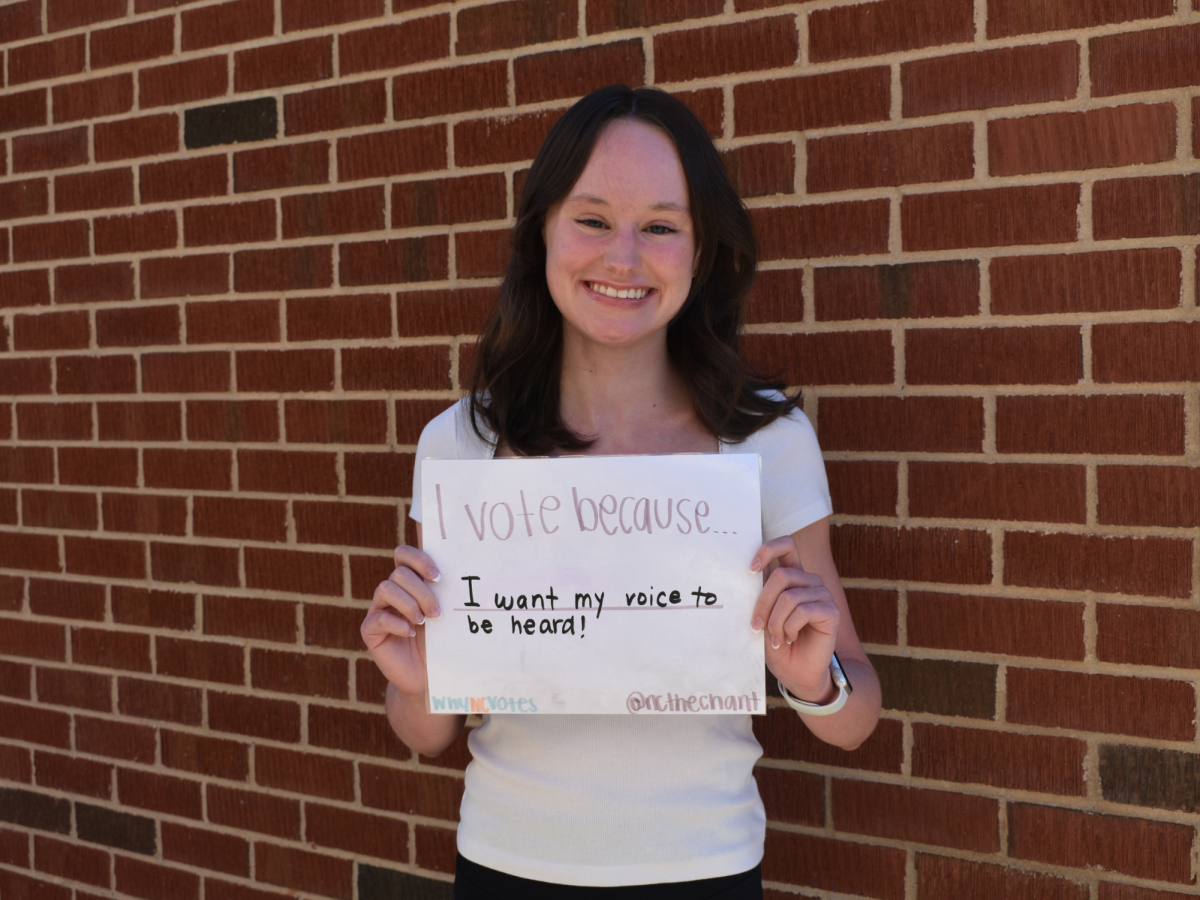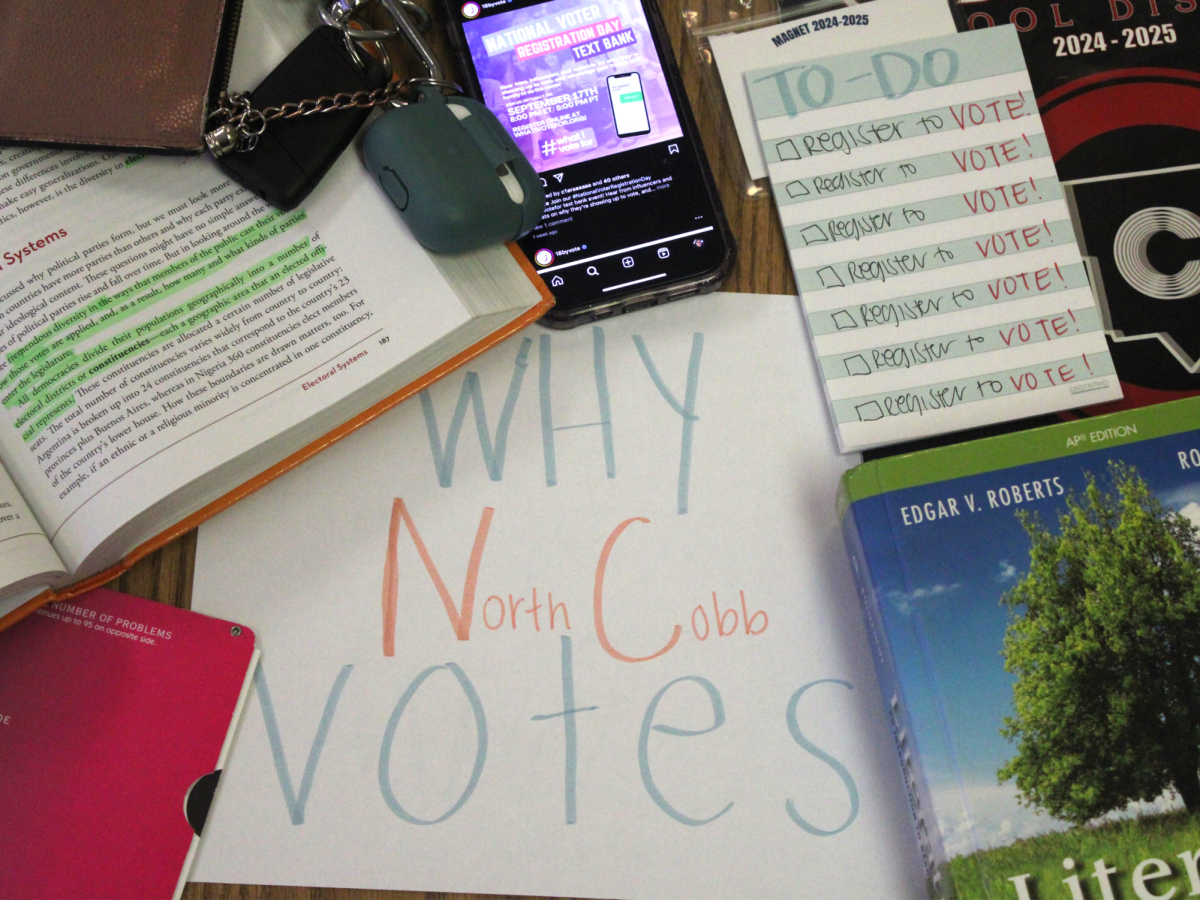A significant component of voters’ preference for certain candidates resides in the policies that the political hopefuls represent. From stances on taxes to positions with social issues, understanding the motivations of politicians encourages their constituencies to support them and allows citizens to vote with accurate judgment. Becoming personally acquainted with each candidate or ballot measure available for an election represents a crucial component of using one’s vote to champion their community — a responsibility that ninth-grade biology teacher Leslie Lane understands all too well. Like several Americans, Lane recognizes the power a vote holds; her comprehension of this power allows her to participate at the polls productively.
“I registered to vote during high school lunch when I was 17. My parents have always been politically active and made a point to teach me the importance of voting. It’s one of the few ways our voices can be heard and to not be involved is to silence yourself. I knew I didn’t like where our nation currently stood on many issues and I wanted to be part of the change. Registering to vote was a no-brainer. I vote for myself, my family, my friends, my community…for everyone. It’s important that all of our voices are heard so we can build a better tomorrow for all of us. What helps those most in need, benefits all of us and creates a strong community, economy, and country,” Lane said.
Advocacy comprises a significant degree of civic engagement. Several citizens attempt to cast their ballot with others in mind; whether for their younger loved ones not eligible to vote, or for friends who may not possess citizenship, voting on behalf of people can serve as a huge motivator for a plethora of individuals. A study by the Pew Research Center questioned Americans about their stances on issues presented by the current presidential candidates and topics such as the economy, gun violence and gender inequality emerged to the forefront of their minds. With 224 million Americans eligible to vote in a country of 337 million, granting a civic voice to those who do not own one ensures that the officials elected can serve all citizens well.
Considering the policies that candidates represent with their campaigns contributes to the championing of the underrepresented. This responsibility helps inform Lane’s political participation. As an established author and blog writer, Lane utilizes her words to eloquently deliver messages, similar to how a vote can deliver the stances of a country succinctly. A vote can alter the climate of an environment; it can change the policies around spending, foreign affairs and an array of issues that alter the lives of the people. According to Lane, voting based on the needs of one’s community stands as an effective way of presenting one’s perspectives and engendering equitable change.
“Voting is a way to have your voice be heard on the political stage in a way no other action can be. You may have heard your vote doesn’t matter, but that couldn’t be further from the truth. In the majority of districts across the U.S., seats are won by just a few votes. Sure, the presidential elections are not as close of a race, but local elections are significantly smaller and sometimes politicians win or are defeated by a single vote. In most districts, a 3% increase in voter turnout could flip the majority of governmental positions. Voting alerts politicians to the needs and desires of the people. They cater their platforms, policies, and positions to the people. If you don’t vote, they have no reason to listen to you and therefore, your voice will go unheard. If you don’t like things the way they are, register to vote as soon as you can and get involved,” Lane said.



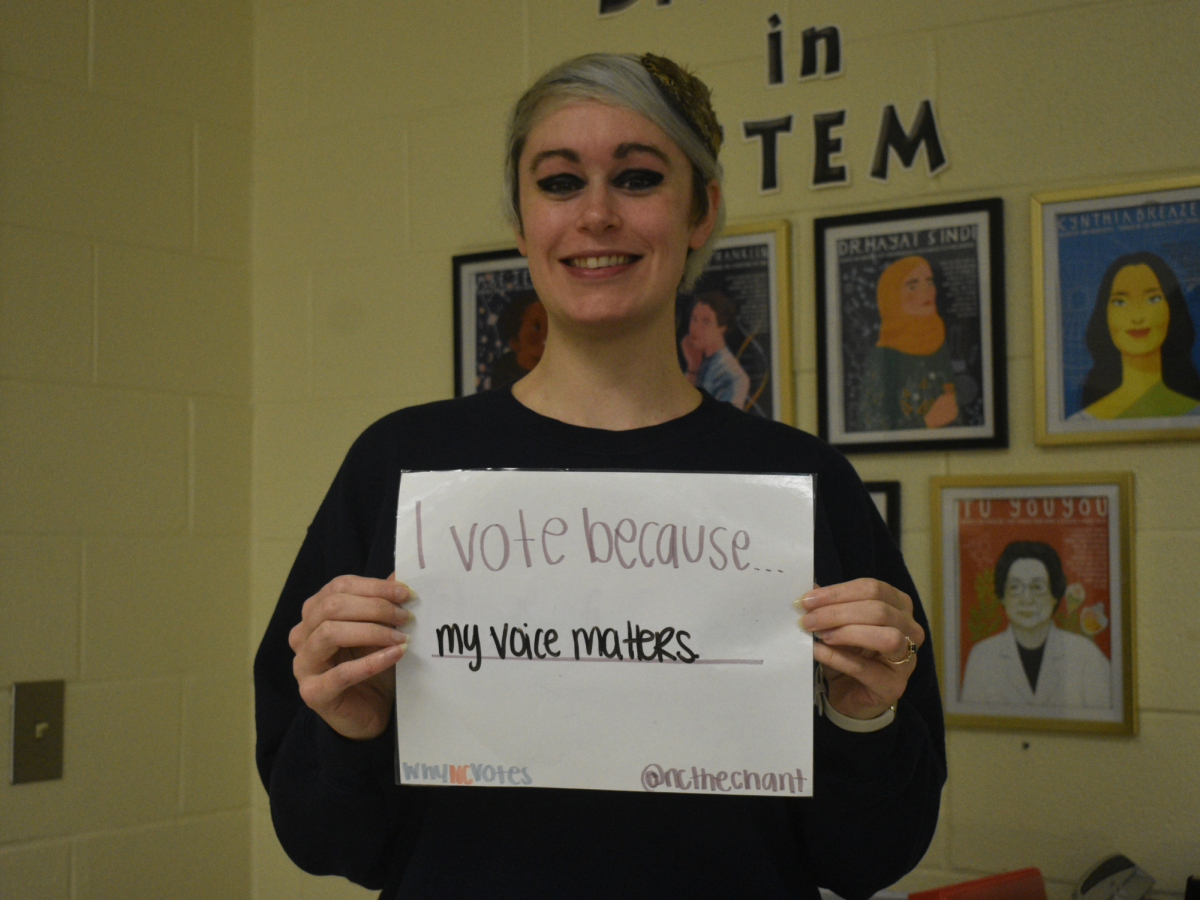


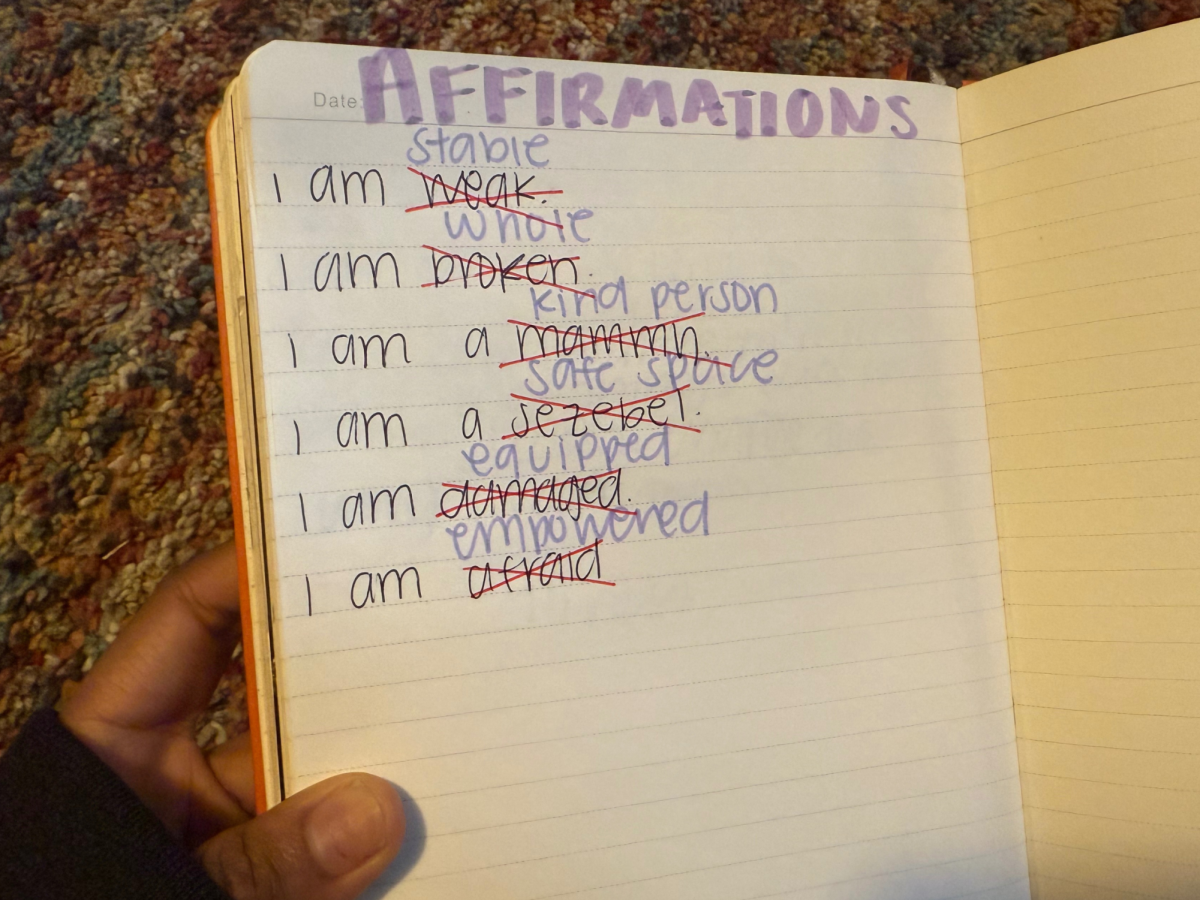



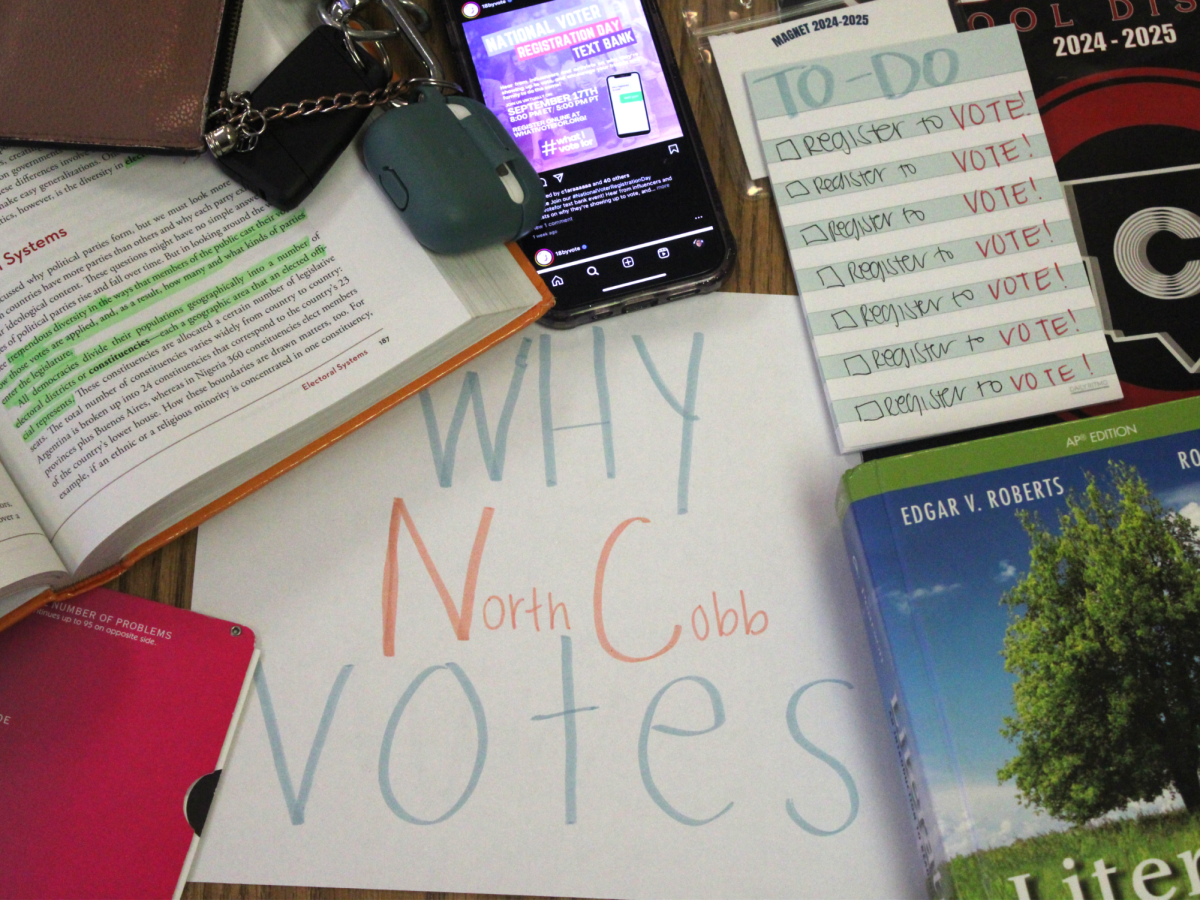
![During an election season, several Americans recall the extensive history — and conflict — with how voting has operated. The vast and often frustrating methods of voting used in decades past can allow modern citizens to appreciate the current methods in place, while also remembering the fond memories that occurred on the civic struggle bus. For Advanced Placement (AP) Macroeconomics and honors government and economics teacher Dr. Pamela Roach, her knowledge and lived experiences of different voting eras allow her to cherish her civic duty, and teach her students to do the same. Although it may not be the most efficacious, I think voting is one act of political participation. You [can] write and email your elected representative, whether it's at the local state or national level. [That] has a place in democracy because how else will those elected officials know what we, the people, want? ‘We the people’ is a powerful phrase, and no one takes the time to actually go and let their voice be heard by these individuals. So yeah, your voice matters,” Roach said.](https://nchschant.com/wp-content/uploads/2024/11/roach-photo-1-1200x900.png)

![For several government and politics educators around the U.S., an election season represents a key time to educate their students through tangible examples. In the case of Advanced Placement (AP) Comparative Government teacher Carolyn Galloway, this opportunity not only excites her but fervently aligns with her zeal for democratic processes. Through her personal and professional experiences with voting and government, Galloway encourages her students — both those who can vote and those who can not — to enter into elections informed about any topics on the ballot. “[Voting] impacts your government, especially on the local level, because not a lot of people vote on the local level. Who you vote for, how you vote, and whether or not you understand what you are voting for impact everything from who your tax commissioner is, to who your president is, to what ballot measures pass. All of those impact the way the government works for you,” Galloway said.](https://nchschant.com/wp-content/uploads/2024/10/galloway-photo-2-1200x900.png)
